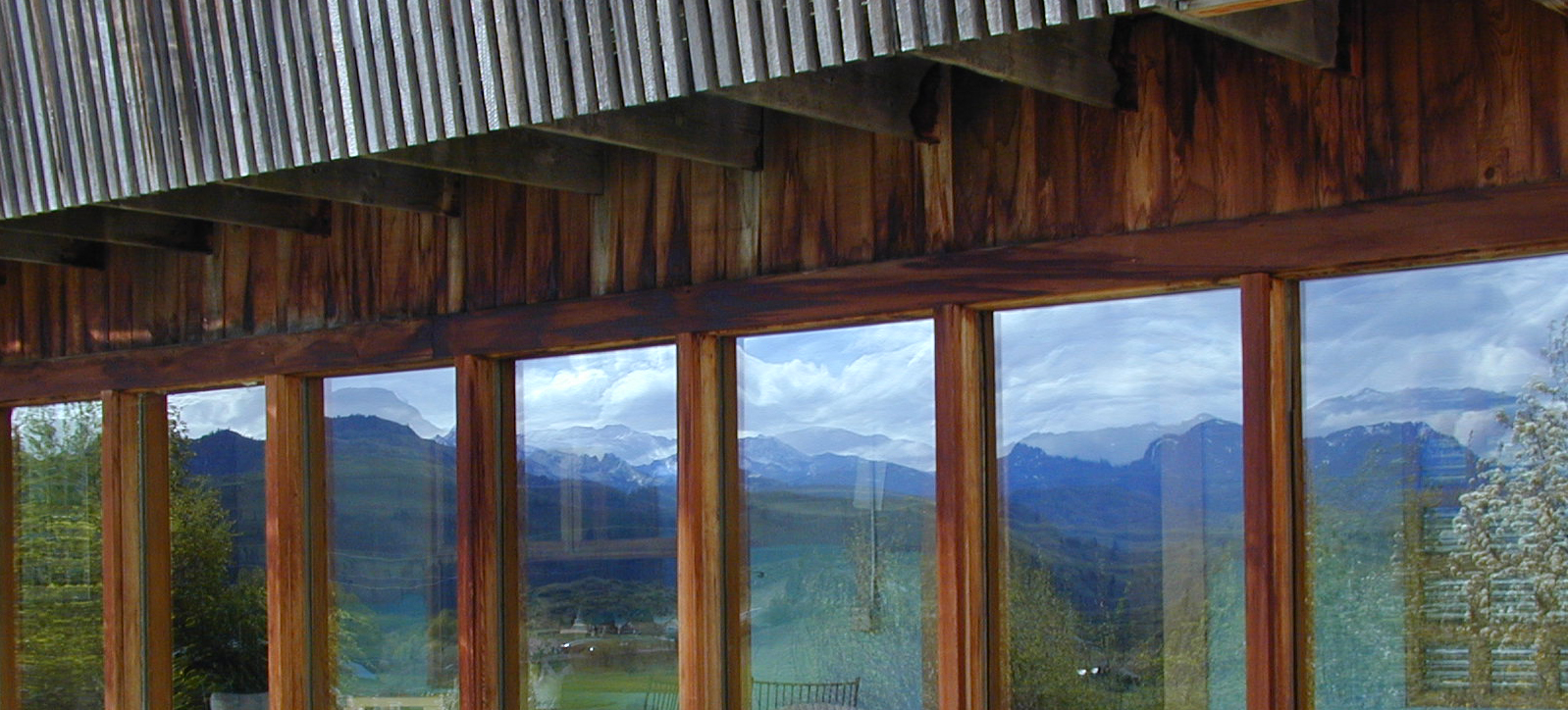
This page is intened to show how Western Red Cedar (WRC) will look over time in its natural or unfinished state. These pictures were taken of products in a dry climate, and have had minimal exposure to moisture. Cedar turns grey, over time, when regularly exposed to moisture.
To stain or not to stain, this is a question that often arises, especially for rural homeowners who are looking for the“ natural” look . Unfinished woods, such as cedar, do not need a finish to resist rot and bugs. They will change color, however, over time. That can be a good or a bad thing, depending on your point of view.
Wood is a natural element in your building’s life. Color change is part of that life. To be honest, my husband and I haven’t ever stained, or painted our home or out buildings.
The reasons are simple. We like the natural weathering better than we like the workload we would set ourselves up for if we had started staining years ago. We also aren’t inclined towards chemicals in our living environment. Our Methow climate is bone dry so it isn’t hard to keep the wood clean. Moisture, UV rays and airborne dust are the main culprits when it comes to natural color change.
In the photos below you can see that even after 20 years, the west side of the house looks as brown as if it has been stained regularly. Yet where water has made contact, the graying will be apparent, such as on the railings.
The window wall has seen some minor water drips and has an uneven discoloration. The outside stairs of the garage, mid-left, have had snow and rain hit them hard, so they are fully gray. Above that, you see a contrast of cedar’s natural colors.
A carved post stands in the weather; the siding behind it protected by an overhang. The cedar industry recommends that you immediately stain, or paint, your outdoor products, either before your put the product into place or directly after. The wood self-seals as it ages, making penetration more difficult the longer it goes without stain.
Each builder/owner makes his choice, to allow nature to take its course or to set the staining/ painting precedent right off the bat. What you see pictured here, the fully weathered gray, has taken about 15 years to develop.
A third choice is to bleach your product to a natural gray immediately. This will take away the variable and set the wood color to its final conclusion. Bear Creek Lumber can offer you literature about finishing options and they can also be found on the website as well. It’s all a matter of choice for the wood product owner.
By Ela Bannick
Weathered With No Stain (un-Finished) Western Red Cedar
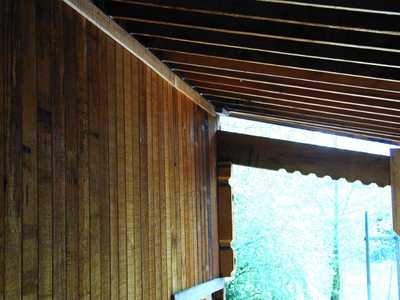
Siding and Beams
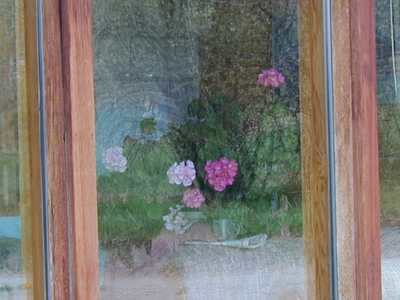
Window Trim
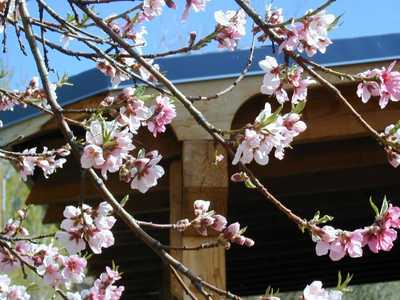
Beams
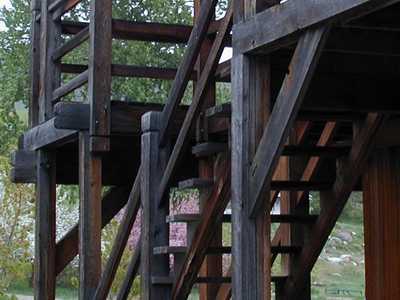
Weathered staircase
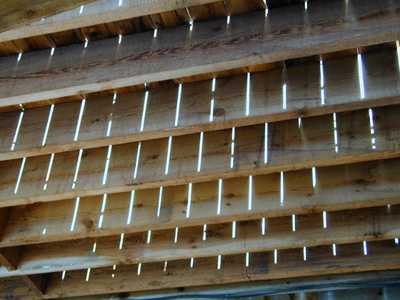
Decking Beams
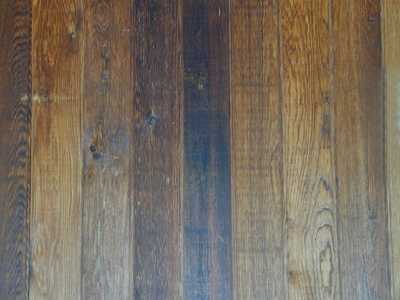
Red Cedar Siding
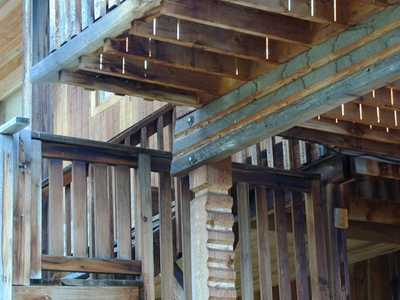
Beams, Rails, Siding
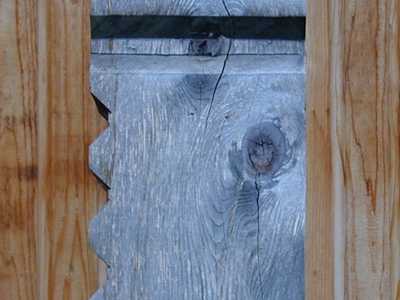
Beam and Siding
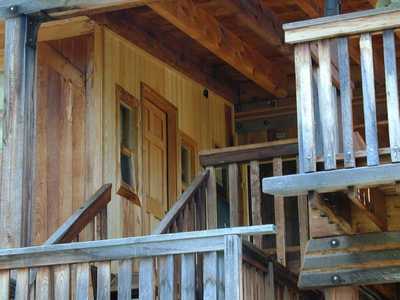
Siding, Trim, Beams, Soffits and Deck Railings
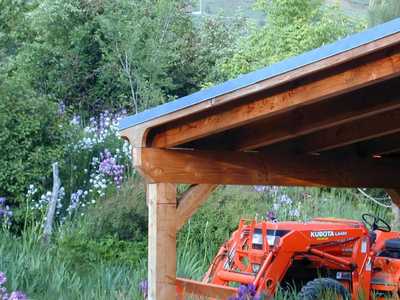
Fascia Boards, Post and Beam
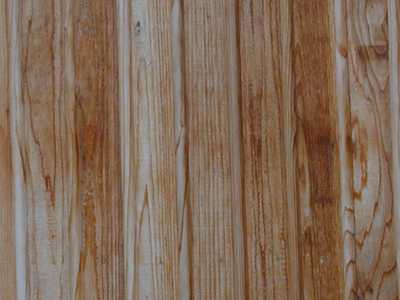
Red Cedar Siding
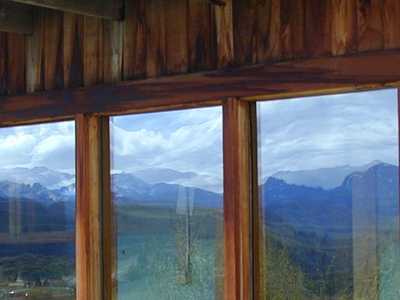
Window Trim, siding and deck railings
Weathered & stained (finished) Western Red Cedar
These photos show Western Red Cedar Siding, Trim, Soffits, Fascia, Decking, Post and Beam and Railings that are all being stained and maintained regularly in order to maintain an even appearance and reduce the grey over time.
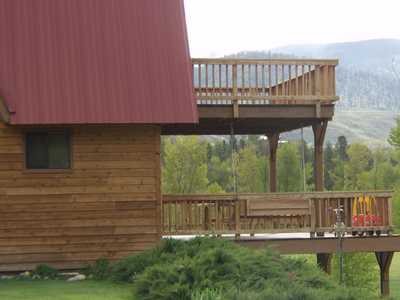
Stained and Weathered Siding, Decking & Railings
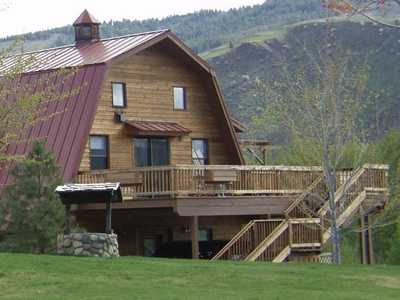
Stained and Weathered Siding, Decking and Railings
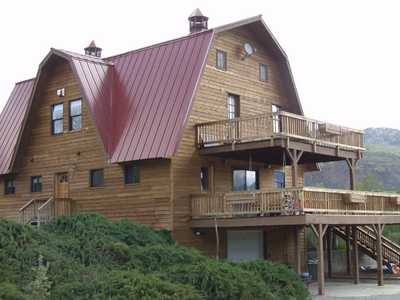
Stained and Weathered Siding
Greenwich, CT - Western Red Cedar Siding
These photos show Western Red Cedar Siding as it has help up to extreme weather over time. This siding holds up well most of the time. It tends to discolor mostly due to water. If the nails used are not stainless steel, they can cause the wood to streak over time. All red cedar will get darker as it ages, especially with direct sunlight.
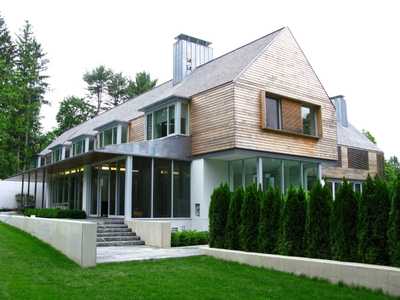
Weathered Siding, Trim, and Slats
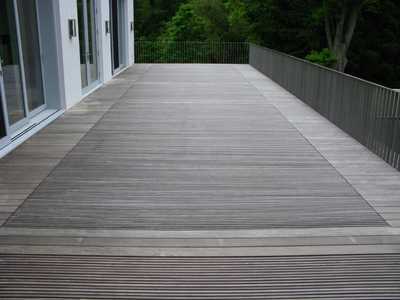
Weathered Decking and Railings
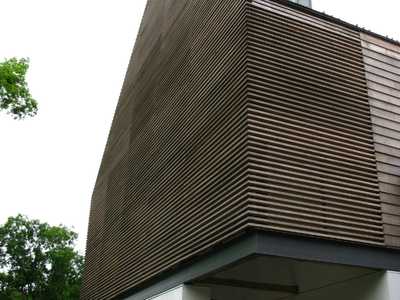
Weathered Slatted Siding and Bevel Siding

Aged Red Cedar Timbers and Slats

Looking up at Aged Red Cedar Timbers and Slats

Aged Red Cedar Timbers and Slats

